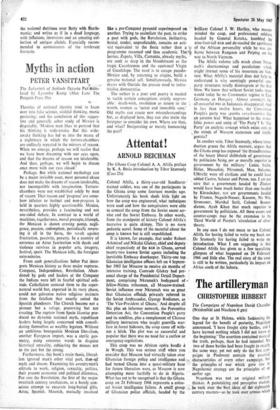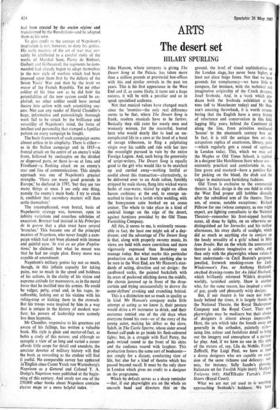The Campaigns of Napoleon David Chandler (Weidenfeld and Nicolson 6
gns)
The artilleryman
CHRISTOPHER HIBBERT
The Campaigns of Napoleon David Chandler (Weidenfeld and Nicolson 6 gns) One day at St Helena, while fashioning his legend for the benefit of posterity, Napoleon announced, 'I have fought sixty battles, and I have learned nothing which I did not kno‘i, at the beginning.' The assertion contained more of the truth, perhaps, than he had intended. No two of those battles had been fought in exactly the same way; yet not only do the first cam- paigns in Piedmont contain the essential characteristics of every other campaign, but the principles of war which gave rise to Napoleonic strategy are the principles of an earlier age. Napoleon was not an original military thinker. A painstaking and perceptive student, he took over the best ideas of the eighteenth century masters—as he took over armies which had been created by the ancien regime and transformed by the Revolution—and he adopted them as his own.
To give credit to the sources of Napoleon's inspiration is not, however, to deny his genius. His early mastery of the art of war may cer- tainly be attributed to a careful study of the works of Marshal Saxe, Pierre de Bottrcet, Guibert and Gribeauval; the regiments he com- manded had already begun to adapt themselves to the new style of warfare which had been imposed upon them first by the defeats of the Seven Years' War and then by the levee en masse of the French Republic. Yet no other soldier of his time saw as he did how the potentialities of the new system could be ex- ploited; no other soldier could have turned theory into action with such astonishing suc- cess. Nor can any reader of David Chandler's huge, informative and painstakingly thorough work fail to be struck by the brilliance and versatility of Napoleon's mind, the force of intellect and personality that stamped a familiar pattern on every campaign he fought.
The basic framework of each campaign seems almost artless in its simplicity. There is either— as in the Italian campaign and in 1815—a frontal attack on the centre of an enemy's wide front, followed by onslaughts on the divided or dispersed parts, or there is—as at Jena and Friedland—a flanking attack on an enemy's rear and line of communications. This simple approach was one of Napoleon's greatest strengths. 'There are many good generals in Europe,' he declared in 1797, tut they see too many things at once. I see only one thing, namely the enemy's main body. I try to crush it, confident that secondary matters will then settle themselves.'
The uncomplicated, even brutal, basis of Napoleonic strategy was, however, open to infinite variations and countless subtleties of execution. Bourcet had insisted in his Principes de la guerre that a plan must have several 'branches.' This became one of the principal maxims of Napoleon, who never fought a cam- paign which had not been planned with intense and painful care. 'le n'ai en un plan d'opera- lions,' he claimed; but what he meant was that he had no single plan. Every move was capable of amendment.
Napoleon's military genius lay not so much, though, in this infinite capacity for taking pains, nor so much in the speed and boldness of his actions, in the clarity of his vision and supreme attitude for manoeuvre, as in the moral force that he instilled into his armies. He could be vulgar, petty, cruel and, in his rages, in- sufferable, lashing out at his victims with his riding-crop or kicking them in the stomach. But his troops were inspired by him in a way that is unique in the history of modem war- fare; his powers of leadership were scarcely less than hypnotic.
Mr Chandler, responsive to his greatness yet aware of his failings, has written a valuable book. His style is plain and matter-of-fact, as befits a study of this nature; and although so synoptic a view of so long and varied a career affords little scope for detail and anecdote, the amateur devotee of military history will find the book as rewarding as the student will find it useful. No comparable survey has appeared in-English since Count Yorck von Wartenburg's Napoleon as a General and Colonel T. A. Dodge's Napoleon were published at the begin- ning of this century. And surely not one of the 250,000 other books about Napoleon contains clearer maps or a more helpful index.



































 Previous page
Previous page